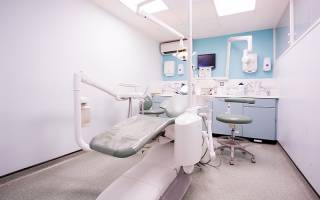Professor Richard Watt
There are over 12,000 dental practices in the UK. These community-based clinics represent an opportunity to implement preventative health interventions, aimed at improving the quality of life of patients. |
|---|
The UCL Dental Public Health Research Group has a well-established research agenda focused on exploring shared aetiological pathways between oral and general health, the determinants and patterns of oral health inequalities and the development/evaluation of complex community interventions to prevent oral diseases.
Activities
This project aims to gather comprehensive evidence to support the development of community-based interventions aimed at improving the oral health and quality of life of people attending dental services, and in particular those who are most vulnerable.
This project will be focusing on:
- Exploratory work on the interface between oral health and mental health for two patient populations:
I. Oral adults with cognitive decline
II. Adults with severe mental health illness. - Preliminary work on the potential role of the dental team in addressing oral health inequalities amongst their patient population.
- Preparation and submission of a grant application for full scale multi-centre randomised controlled trial of a brief alcohol advice intervention delivered in NHS dental practices. This application will be based on encouraging results from one of our previous feasibility studies, DART.
Potential impact
This project has a significant potential impact due to its focus on population oral health, links with key health policy priorities and its relevance to the NHS service development.
We hope to gather comprehensive evidence to support the development of community-based, preventative interventions aimed at improving the health and quality of life of people attending dental clinics. The results and insights gained from this initial pilot work will be used to prepare and submit grant applications for feasibility studies from UK-based funding bodies such as NIHR.
In the long term, we hope to develop effective evidence-based preventive interventions to reduce the overall population disease burden, reduce pressures on NHS treatment services and to reduce oral health inequalities.
 Close
Close




